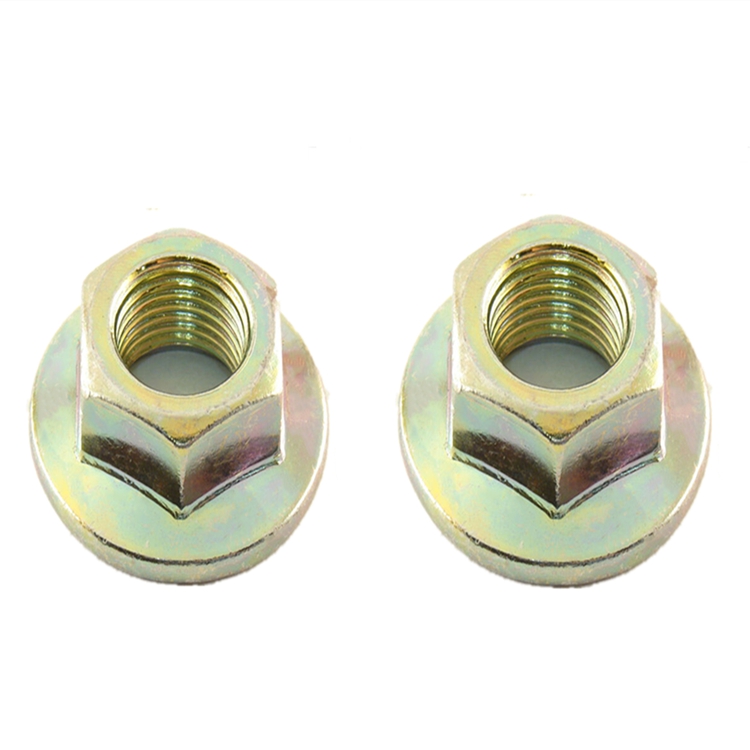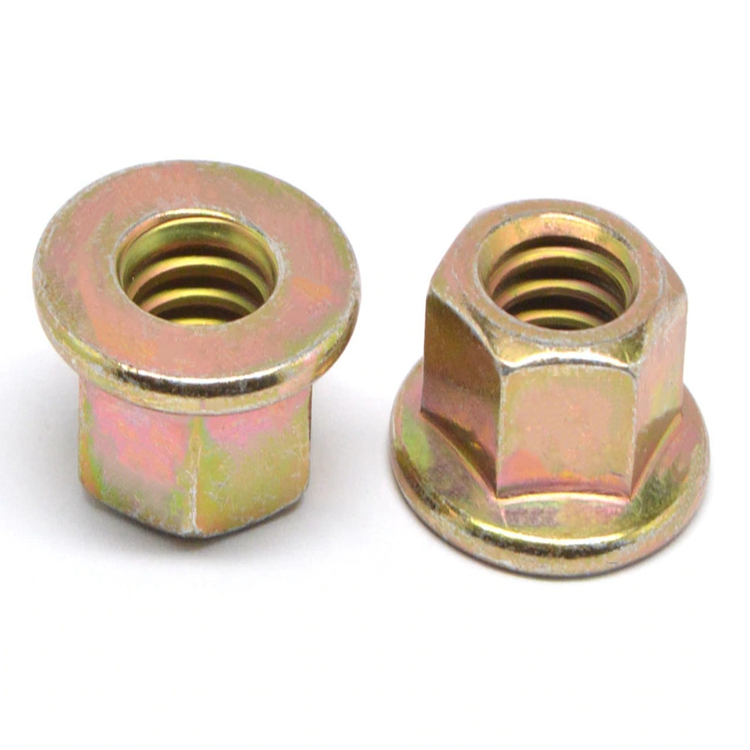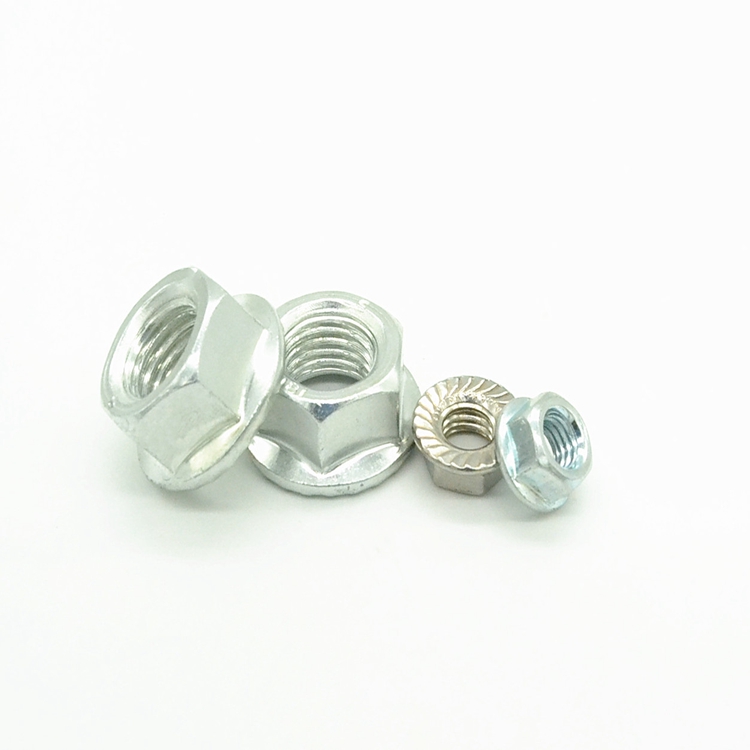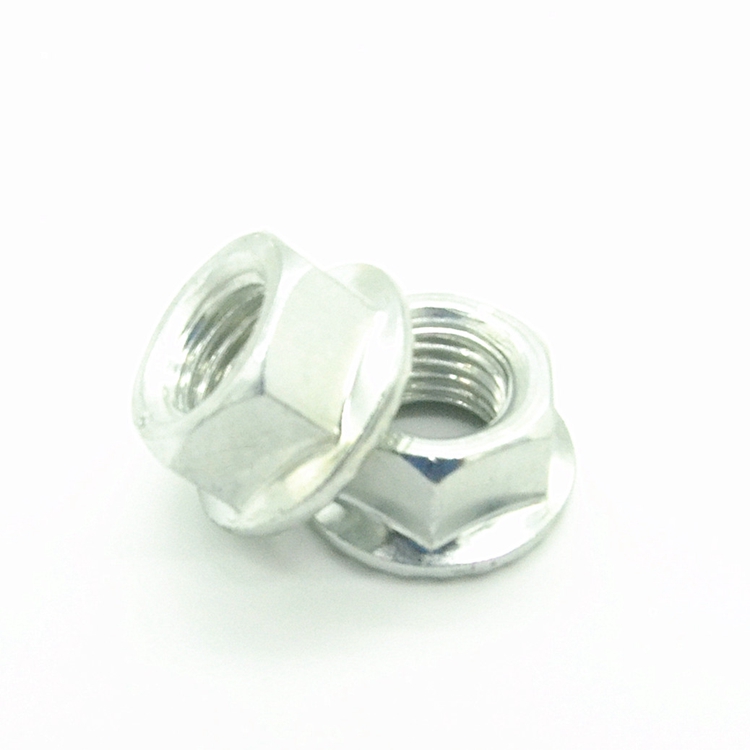Axle nuts supplier with OEM quality and fast delivery?
Oct . 01, 2025 10:55 Back to list
Axle nuts supplier with OEM quality and fast delivery?
What to Look For in an Axle Nuts Partner (From a Factory Floor Point of View)
If you’re searching for an axle nuts supplier that actually gets the realities of assembly lines and field service, here’s the inside track. I’ve walked enough shop floors to know: consistency beats flashy catalogs. One example I keep coming back to is FLANGE NUTS made in Yongnian, Handan (Southwest of Road Taibai, Hebei, China)—the region’s kind of a fastener heartland. These flange nuts pair with bolts, studs, threaded rods—basically any machine-threaded fastener—and the built‑in flange often removes the need for a separate washer. Simple, but it matters when you’re clocking 1,000+ installs a shift.

Industry trends I’m seeing
- EV platforms are pushing higher clamp accuracy (noise reduction around hubs).
- Off‑highway and ag OEMs want corrosion resistance without hydrogen embrittlement risk—zinc‑flake is hot again.
- Traceability and PPAP are non‑negotiable for anything near wheel ends. And yes, lab data, not promises.
Quick product snapshot: FLANGE NUTS for axle and hub assemblies
| Material | Medium carbon steel, alloy steel; optional stainless (≈A2/A4) |
| Property Class | 8, 10, 12 (ISO 898-2) |
| Thread | ISO metric coarse/fine; UNC/UNF available |
| Size Range | M5–M24 standard; customs up to M36 (real‑world availability may vary) |
| Standards | ISO 4161 / DIN 6923; optional prevailing torque to ISO 2320 |
| Coatings | Zinc, HDG, Zn‑Ni, zinc‑flake (ISO 10683); black oxide, phosphate |

Process flow that actually holds up
- Steel sourcing with MTRs → cold forging (multi‑station) → machining of flange face/serrations → heat treat (quench & temper, class‑specific) → surface treatment → 100% thread gauging → torque/prevailing torque checks → salt‑spray validation → packing with lot traceability.
- Testing standards: ISO 898‑2 mechanicals; ISO 2320 for prevailing torque; ISO 6507 hardness; ASTM B117 for corrosion; thread to ISO 965/DIN 13.
- Expected service life: ≈10–15 years in on‑road applications with zinc‑flake; off‑highway depends on mud/chemical exposure (sealant and re‑torque practices matter).
Where they’re used
Wheel hubs and axle stubs, trailer assemblies, ag implements, rail bogies, and wind yaw drives. The flange spreads load; serrations resist back‑off. Many customers say they cut a washer SKU and speed up torque cycles—small wins add up.

Vendor comparison (real‑world, condensed)
| Vendor | Strengths | Lead Time | Certs | MOQ | Customization |
|---|---|---|---|---|---|
| YZ Fastener (Handan) | Strong flange portfolio, zinc‑flake know‑how | ≈15–30 days | ISO 9001; PPAP L3 on request | ≈5k–10k pcs | Sizes, serrations, coatings, laser mark |
| Regional Trader | Local stock, quick ship | 2–7 days (stock) | Varies | Low | Limited; rebrands |
| Global Brand A | Broad catalog, lab network | 30–60 days | IATF 16949 | High | Extensive, premium priced |
Field data and options
- M12, class 10, serrated flange: prevailing torque new ≈15–35 N·m; after 5 cycles ≈8–20 N·m (ISO 2320).
- Zinc‑flake coated sets: >600 h neutral salt spray (ASTM B117) without red rust on significant surfaces; I’ve seen 720 h with topcoat, to be honest.
- Customization: serration geometry, flange OD, coating thickness (≥8–12 μm Zn‑Ni), lot marking, ROHS/REACH docs, PPAP Level 3.

Mini case study
An ag OEM in the Midwest swapped plain hex + washer for serrated flange nuts on axle carriers. Outcome over 9 months: ≈12% assembly time reduction, one fewer SKU, and warranty looseness claims down ≈28%. Not magic—just better flange contact and repeatable torque.
How to choose your axle nuts supplier
- Demand ISO 898‑2 and ISO 4161/DIN 6923 conformance on the cert, not just “equivalent”.
- Ask for actual torque/prevailing torque curves and salt‑spray photos, lot‑by‑lot.
- Check heat‑treat controls and hydrogen embrittlement mitigation if using electro‑zinc on high classes; or go zinc‑flake to sidestep risk.
Final thought: a reliable axle nuts supplier isn’t just shipping metal. It’s traceability, repeatability, and people who answer emails when your line is down. That’s the real differentiator.
References
- ISO 898‑2: Mechanical properties of fasteners — Nuts with specified property classes.
- ISO 4161 / DIN 6923: Hexagon nuts with flange.
- ISO 2320: Prevailing torque type steel hexagon nuts — Functional properties.
- ASTM B117 / ISO 10683: Salt spray testing; Non‑electrolytically applied zinc flake coatings.
Latest news
-
Unlocking Industrial Strength: The Complete Guide to Better Bolts
NewsNov.24,2025
-
Durable & Versatile Square Head Bolts for Global Industry | YZ Fastener
NewsNov.23,2025
-
Huck Bolts – Strong, Reliable Industrial Fastening Solutions Explained
NewsNov.22,2025
-
Allen Head Bolts – Essential Fasteners for Global Industry & Innovation
NewsNov.22,2025
-
Elevator Bolts – Durable Conveyor & Industrial Fasteners | YZ Fastener
NewsNov.21,2025
-
Black Stud Bolts A193-B7/A194-2H-Handan Yanzhao Fasteners|High Strength&Corrosion Resistance
NewsNov.21,2025
